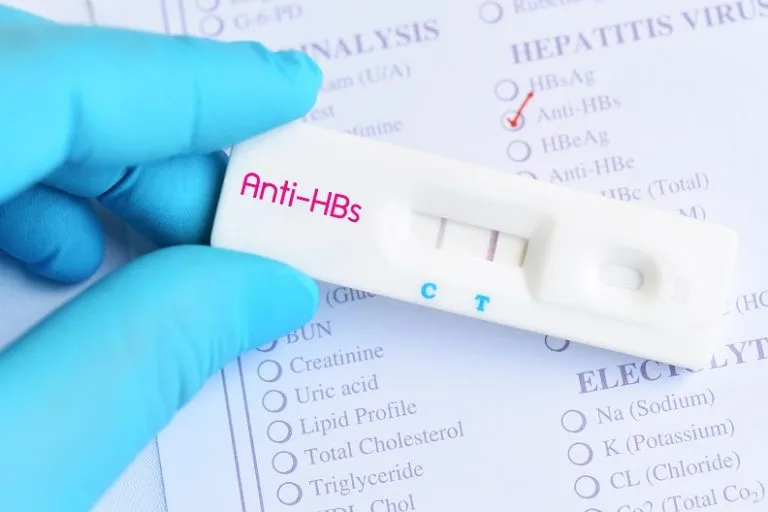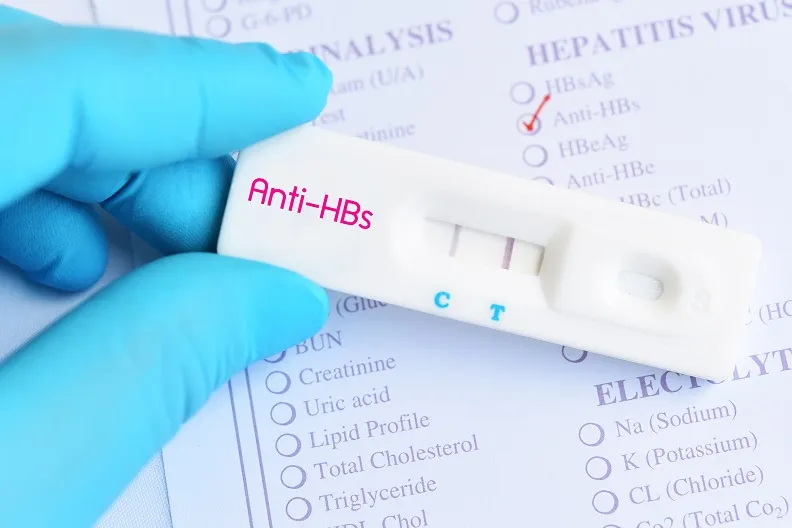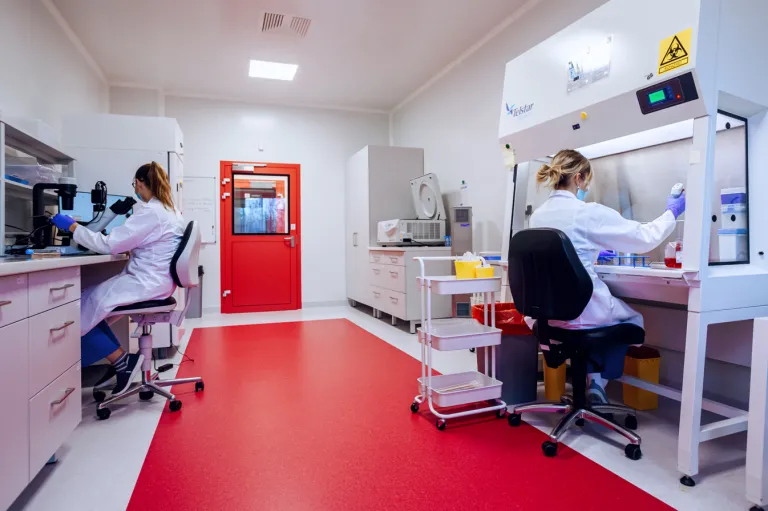During pregnancy, a woman's health is regularly monitored by the attending physician. One of the tests routinely performed is, among others. HBs antigen test in the mother's blood. What is HBs antigen and when should I test for it?
What is the HBs antigen?
The HBs antigen is actually a protein that is found on the surface of the HBV virus. The pathogen is responsible for causing hepatitis B, leading to cirrhosis in some situations. HBs antigen plays a key role in the diagnosis of HBV infection, as it is the marker that first appears in the human circulation after the pathogen enters the body. Moreover, the protein is identifiable even before the onset of clinical symptoms such as jaundice and the deterioration of liver parameters in the form of an increase in ALT and AST levels. The HBs antigen is present in the acute phase of the disease after which it disappears to reappear in the circulation in smaller amounts in the chronic phase of infection. For this reason, its detection also requires further serological and molecular tests to assess the progression of the disease.
The virus is transmitted between people after contact with the blood or body fluids of an infected person. Infection can also occur through sexual contact. Since 1994, every newborn, in the absence of contraindications, is vaccinated against HBV, and the full vaccination cycle is completed in 6. month of life, when the third dose of the vaccine is given. Vaccination gives full protection against the virus for at least 25 years.
When should HBs testing be done in pregnancy?
According to the current Polish Organizational Standard of Perinatal Care issued by the Minister of Health, every pregnant woman should be tested for HBs antigen and possible HBV infection. This study should be conducted between 33-37. week of pregnancy. If the result is negative, the woman is considered healthy, and no further monitoring during pregnancy is needed. The possible presence of HBs antigen, suggesting acute infection, makes it necessary to expand the diagnosis and plan the delivery accordingly. Immediately after birth, the newborn must be given anti-HBs and anti-HBc immunoglobulin. Caesarean sections are also discouraged. These procedures are designed to reduce as much as possible the risk of transmission of infection from mother to child during delivery.
It is worth noting, however, that HBV infection is rare in our country in people born after 1994 or in those who have been vaccinated against the pathogen. Despite this, however, there are still situations where a person is an HBV carrier without realizing it. Therefore, this test continues to play a significant role in the care of pregnant women.
What is the price of HBs testing in pregnancy?
The test to assess the presence of HBs antigen in pregnancy is free of charge, as it is mandatory. If you want to do the test privately, you should expect a cost of approx. 25 zlotys depending on the lab and city. To test for the presence of HBs antigen, it is necessary to draw venous blood.
Rate this article:












